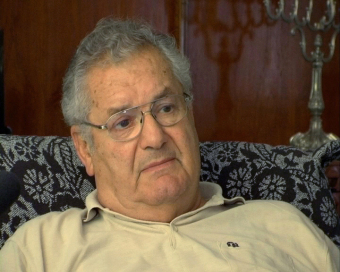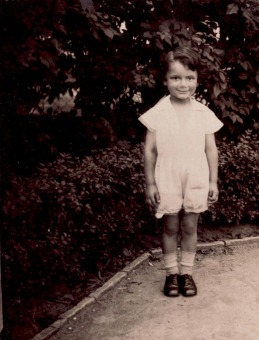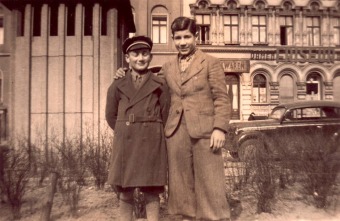David Salz (*1929)

© Fritz Bauer Institute

© David Salz

© David Salz
David Salz, the younger of two sons, was born in Berlin in 1929. His older brother, Zeli, as well as his grandparents and his aunt, managed to emigrate to Palestine. His mother, Dora Salz, did not want to leave the country without his father, however, and was waiting for his release: He had been arrested by the Gestapo in 1936, and was shot in confinement at Christmas 1939.
David lived alone with his mother in Berlin. He attended the Jewish elementary school, and his mother worked for Siemens. In early March 1943, she failed to return from work one day. While searching for her, David Salz was arrested by the Gestapo and deported shortly thereafter to Auschwitz. Not until later did he learn that his mother also had been deported to Auschwitz just days before and gassed immediately.
David Salz, just turned 13, claimed to be a 16-year-old electrician, and he was placed in the Buna/Monowitz concentration camp as a result. “I made a vow to myself: if it’s the word ‘electrician’ that gets me through all of this alive, then I’ll become an electrician afterwards.”[1] Through the help of older inmates, especially Erich Markowitsch and the tailor Kowalski, who “organized” additional food for him and protected him from the most brutal Kapos, David Salz managed to survive.
The death march, in which the SS forced the prisoners of the Buna/Monowitz concentration camp to take part on January 18, 1945, took David Salz and 10,000 other inmates by way of Gleiwitz to the Mittelbau-Dora concentration camp. During the bombardment, he successfully escaped from a subcamp of Mittelbau. Forced to flee from the anti-Semitic civilian population once again, he hid in the forest for several days; one morning, completely exhausted, he ran into American soldiers. He was sent to a military hospital, which later was taken over by the Russian armed forces. After convalescing, he returned to Berlin.
David Salz couldn’t stand seeing how the former Nazi functionaries gradually returned to their old positions, and he resolved to leave Germany. His friends Herman Shine and Max Drimmer tried to persuade him to come to the United States, but David Salz chose to emigrate to the British Mandate of Palestine in 1946. His aunt was unable to assist him, so he first went to a kibbutz, but soon left it again because the odor of cow manure reminded him of his time in the camps. With a great deal of dedication, he managed to get accepted as an electrician’s apprentice. Until his retirement 43 years later, he worked for the Israeli electricity plants. He married Chaya Salz, and the couple had two sons, Yossi and Doron.
After the Eichmann trial in 1961, David Salz started talking about his experiences in Auschwitz. In 1964, he was called as a witness in the first Frankfurt Auschwitz trial; this was so stressful for him that he had to leave the country before the trial was over.
Now a widower, David Salz lives in Givatayim, Israel. Currently he is fighting to regain his German citizenship, to help his children make a life abroad. The Federal Administration Office (Bundesverwaltungsamt) turned down his application, saying it believed David Salz had failed to demonstrate that he held German citizenship after 1945.
On the basis of video interviews and conversations with David Salz, playwright Katharina Schlender wrote the stage play Der Elektriker (premiere in Hans-Otto-Theater, Potsdam, 2006, directed by Uwe Eric Laufenberg) about his time in the Buna/Monowitz concentration camp.
(SD; transl. KL)
David Salz, oral history interview
(German)
















